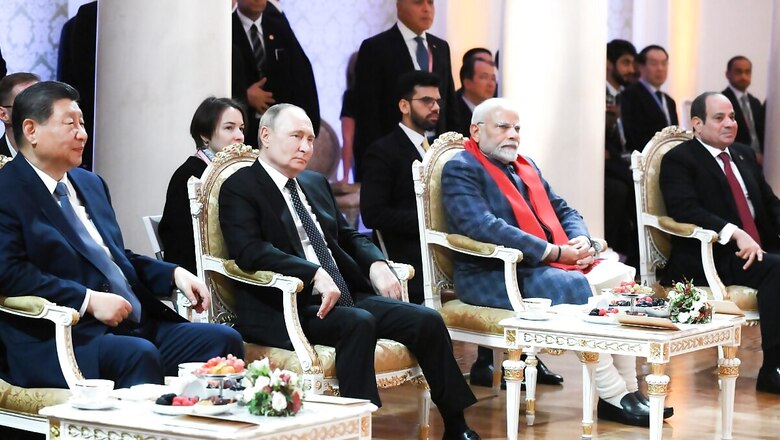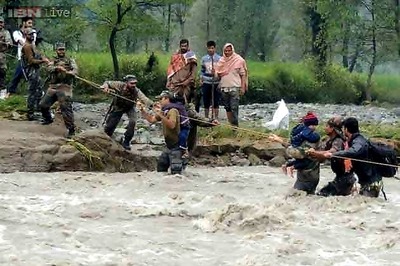
views
There are several messages being beamed out of the Kazan chapter of the BRICS summit where Russian President Vladimir Putin has pulled out all stops to host world leaders from a growing list of more than 20 nations.
The first among these is that a new non-West age of global diplomacy is finally taking credible shape. This is clear from the fact that more countries are preparing to invest and even risk tremendous amounts of diplomatic capital by joining a grouping that defines itself as an alternative to a United States-dominated Western global order.
This is a far cry from 2009, when BRICS comprised of only five members. Then the world was a very different place. The United States was the undisputed hegemon with few ready to challenge its superiority. The US had after all decimated Afghanistan and Iraq, and everyone seemed to buy into the Washington scripted righteous spin given to the twin invasions.
But then, soon after, the US betrayed the trust of the world. Reports emerged that beyond the declared wars, it was pursuing several alleged “secret wars” as part of its global war on terror and under a “strained interpretation of constitutional self-defence.”
Some in the Global South even trace the roots of antagonism that resulted in the Ukraine conflict to this adventurism.
In fact, the Ukraine war and the weaponisation of sanctions, can be credited for driving the growth of BRICS from a club of five countries to nine, with at least three dozen more nations keen to join. Each of these, including some US allies, have reasons to be anxious of untrammeled US-led anglosphere’s hegemony.
Second, the growing BRICS bloc, which is beginning to display greater diversity, can better drive consensus on a myriad of concerns afflicting the Global South than a smaller grouping seemingly dominated by China’s priorities. Up until the BRICS was restricted to a 5-nation bloc, members like South Africa and India were wary of the Ruso-Chinese attempt at turning the grouping into an anti-West axis. This fear meant that the Bloc couldn’t unite behind its original purpose of being the pivot for reforming global governance. Now, with more members and greater diffusion of expectations, the bloc can reflect the more reformist reasons for which it was forged.
Third, the expanded BRICS plus, some experts think, will also allow the forum’s members to apply collective pressure on the US-led West that it needs to do more to win the trust of the Global South. A world where the West is more responsive to the views, concerns and the needs of the Global South can only be a better one.
Of course, there will be many cynics who may continue to write off BRICS as an incohesive bloc addled by inherent contradictions and rivalries among its constituents. But these naysayers will be doing so at their own risk. Many other groupings like the G-7 and G-20 not to mention several UN fora also grapple with their own internal divisions.
In the end analysis, the biggest message from Kazan might simply be that BRICS Plus is here to stay and that the US-led West’s hegemony might finally be waning.
Views expressed in the above piece are personal and solely those of the author. They do not necessarily reflect News18’s views.




















Comments
0 comment